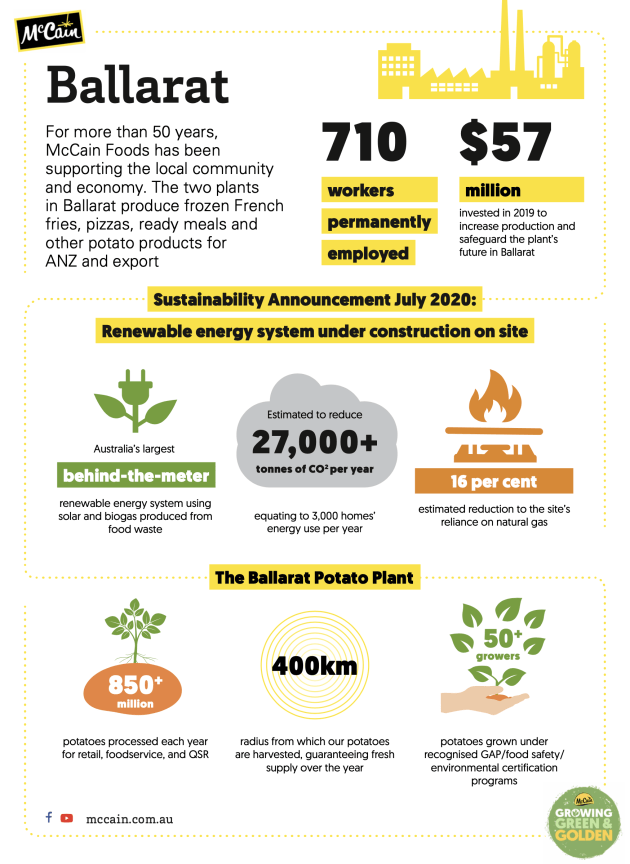McCain Foods Ballarat has recorded a 20 per cent improvement in water efficiency over the past 12 months, as part of its Growing Green and Golden sustainability campaign. It has also reduced waste by 40 per cent and is on track to reduce its energy use by 39 per cent.

McCain Foods Ballarat Potato Plant manager Rodney McLaren said sustainability through water savings and energy reduction have been a focus for the plant for many years due to the volume of potatoes it processes.
While the region is not currently a water-stressed area, McLaren said he and the team at the facility wanted to take on a more ambitious target than the two per cent set in McCain’s Be Good. Do Good. sustainability report.
McLaren said: “We saw there were multiple opportunities across the site to minimise water usage, and we wanted to motivate the teams to do all that they could, leading us to set a further three per cent water reduction goal for 2021 and beyond.”
2020 has also seen the Ballarat facility progress on its waste minimisation and recovery plan, initiate a Global Energy Efficiency Program and begin work on Australia’s largest behind-the-meter renewable energy system – supporting the business’ commitment to making smarter decisions to reduce its impact on the environment in Australia.
The company said it is committed to a low-carbon economy in Australia and New Zealand by concentrating on emissions, waste, investment in renewable electricity and more sustainable use of packaging and water.
The Ballarat site has also recorded a 40 per cent reduction in waste after implementing a zero-waste methodology. It identified a set of principles on waste prevention throughout the production process, which prompted a redesign of the resource life cycle to ensure all inputs were being fully utilised.
Energy use reduction has also been a priority for the Ballarat potato plant. The McCain Global Resource Efficient Operations program drives operational practices at each McCain plant to identify viable energy efficiency and decarbonisation technologies to ensure best practice.
McLaren said: “There have been numerous energy efficiency studies under the program now completed on our site and we have found a range of energy saving opportunities here with some already applied which is great to see.
“The plant upgrade completed a couple of years ago certainly helped us drive this most recent increase in efficiencies.”
This program has also seen the start of the installation of 17,000 solar panels at the plant, creating Australia’s largest behind-the-meter renewable energy system, which will eventually reduce the facility’s energy consumption by 39 per cent.
A cogeneration anaerobic digester will be installed to repurpose food scraps into biogas to generate energy, reducing the site’s reliance on natural gas by 16 per cent.






